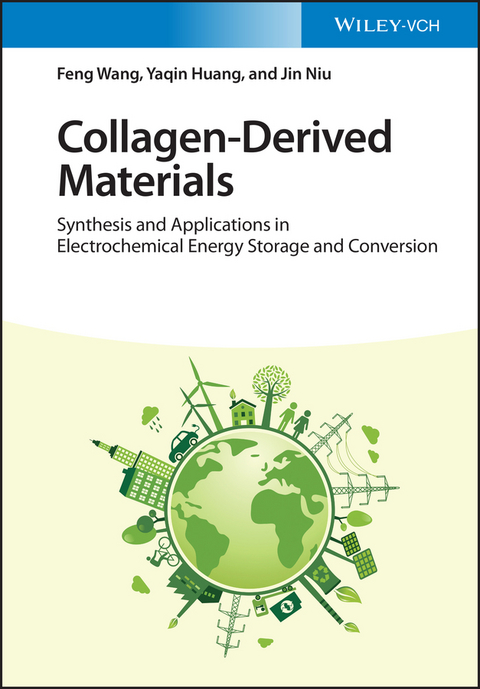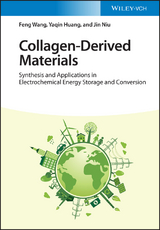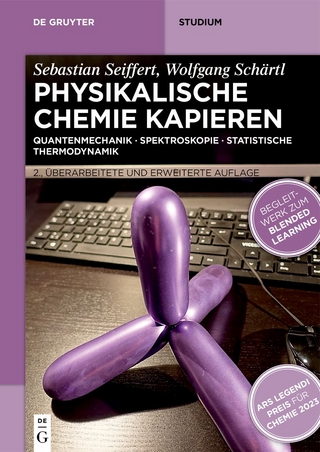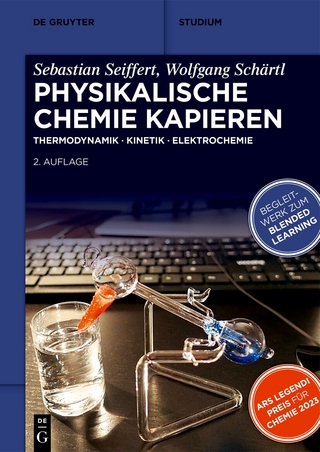Collagen-Derived Materials
Wiley-VCH (Verlag)
978-3-527-34962-3 (ISBN)
Feng Wang received his PhD from Tokyo Metropolitan University in March 2003. He was a postdoctoral fellow in Shinshu University (Japan) from 2003 to 2006. He became a full Professor at Beijing University of Chemical Technology (BUCT) in 2006. In 2007, he was selected to participate in the "New Century Outstanding Talent" scheme of the Ministry of Education of China. In 2011, he was supported by National Science Foundation for Distinguished Youth Scholars. He is now the vice president of BUCT and the director of Beijing Key Laboratory of Electrochemical Process and Technology for Materials. Professor wang have authored over 190 scientific publications and has been awarded 45 patents. He has received two provincial or ministerial level Scientific and Technological Progress Prizes (First Class and Second Class). His expertise covers electrocatalytic materials, energy storage materials, nanocarbon materials, and applied electrochemical engineering.Yaqin Huang is a professor in the College of Materials Science and Engineering at BUCT. She received her Ph.D. degree in Applied Chemistry from BUCT. She is now the director of National Light Industry Gelatin Products Quality Supervision and Testing Center and the executive director of China Daily Chemical Industry Association Gelatin Branch. Her research interests are in the area of nature-inspired materials (collagen, gelatin and collagen peptides) for energy storage and healthcare, including the design and fabrication of carbon and carbon-based hybrid materials from natural macromolecules and quality analysis of collagen and gelatin.Jin Niu received his Ph.D. degree from BUCT under the supervision of Prof. Feng Wang in 2018. He accepted a Joint training doctoral fellowship in 2017, and became a visiting student in Massachusetts Institute of Technology, USA. He was a research assistant professor at Tokyo Metropolitan University From 2019 to 2020. Now he is Associate Professor at BUCT. His research interests mainly focus on the synthesis and energy applications of collagen-derived materials and carbon-based materials.
1 Introduction
1.1 Electrochemical energy storage and conversion
1.2 Materials for electrochemical energy storage and conversion
1.3 Collagen-derived materials for electrochemical energy storage and conversion
2 Collagen
2.1 History of collagen
2.2 Structure and composition of collagen
2.3 Classification, function and distribution of collagen
3 Synthesis and applications of collagen
3.1 Biosynthesis of collagen
3.2 Extraction of collagen
3.3 Applications of collagen
4 Gelatin
4.1 History of gelatin
4.2 Structures and compositions
4.3 Properties and characterization
5 Synthesis of gelatin
5.1 Extraction
5.2 Modification
6 Applications of gelatin in electrochemical energy storage and conversion
6.1 As binders for battery electrodes
6.2 As modifying agents for battery electrodes
6.3 As modifying agents for battery separators
6.4 As electrodeposition additives for electrode preparation
6.5 As hydrogel electrolytes for batteries
6.6 Other applications in electrochemical energy and conversion
7 Collagen-derived carbons
7.1 History of collagen-derived carbons
7.2 Carbonization mechanism of collagen-derived carbons
7.3 Structures and compositions of collagen-derived carbons
8 Synthesis of collagen-derived carbons
8.1 Conventional preparation methods
8.2 Nature-inspired methods
9 Applications of collagen-derived carbons in electrochemical energy storage and conversion
9.1 As electrode materials for supercapacitors
9.2 As electrode materials for hybrid capacitors
9.3 As anode materials for alkali-ion batteries
9.4 As anode modifiers for alkali-ion batteries
9.5 As modifying agents for Li-S batteries
9.6 As metal-free electrocatalysts
9.7 As support materials for hybrid electrocatalysts
9.8 As support materials for metal-nitrogen carbon electrocatalysts
10 Challenges and opportunities
10.1 Principles for material design
10.2 Strategies for material synthesis
10.3 Diversities for material applications
10.4 Inspirations for other materials and their applications
| Erscheinungsdatum | 05.03.2022 |
|---|---|
| Verlagsort | Weinheim |
| Sprache | englisch |
| Maße | 170 x 244 mm |
| Gewicht | 724 g |
| Themenwelt | Naturwissenschaften ► Chemie ► Physikalische Chemie |
| Technik ► Maschinenbau | |
| Schlagworte | Biopolymere • biopolymers • Chemie • Chemistry • Electrochemistry • Elektrochemie • Energie • Energiespeicherung • Energieumwandlung • Energy • Hydrogen, Batteries & Fuel Cells • Materialien f. Energiesysteme • Materials for Energy Systems • Materials Science • Materialwissenschaften • Methods - Synthesis & Techniques • Organische Chemie / Methoden, Synthesen, Verfahren • Polymer Science & Technology • Polymerwissenschaft u. -technologie • Wasserstoff, Batterien u. Brennstoffzellen |
| ISBN-10 | 3-527-34962-6 / 3527349626 |
| ISBN-13 | 978-3-527-34962-3 / 9783527349623 |
| Zustand | Neuware |
| Informationen gemäß Produktsicherheitsverordnung (GPSR) | |
| Haben Sie eine Frage zum Produkt? |
aus dem Bereich




